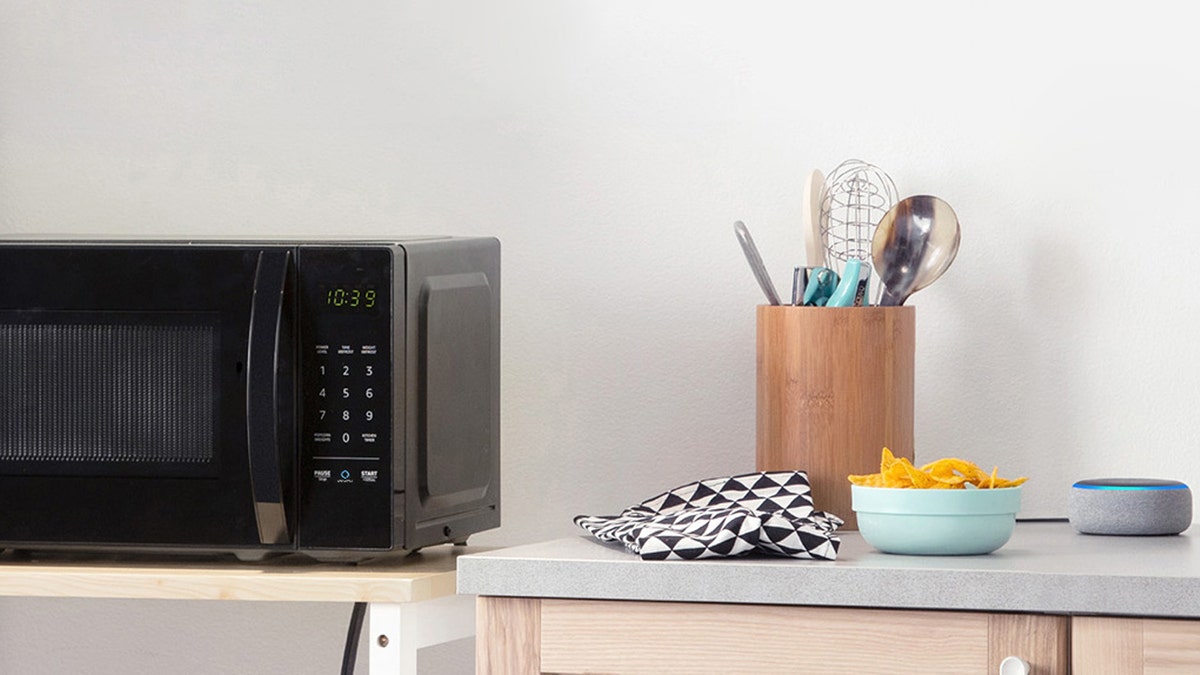
(Credit: Amazon)
To use the title of Brad Stone's seminal book about the nation's largest online retailer, Amazon is so much "The Everything Store" that it can be a little hard to remember when it was just a bookstore. But Jeff Bezos' ambitions are actually the grandest in the land, and the dozen-plus Alexa devices the company announced today show the next step.
Throughout tech history, incumbents have needed to beware of leapfroggers. Apple never needed to defend a dumb-phone business, so it could upend smartphones. T-Mobile had no landline thinking, so it could become the UnCarrier. Amazon never quite fit into the smartphone era, so it's fearlessly creating the standard operating system for the smart home era.
The new Alexa speakers aren't the big deal from today's announcements; that would be the wall clock and microwave oven. Apple and Google still think of their voice assistants as outgrowths of the mobile phone, because they came from mobile phone OS divisions. Google's a little better than Apple at knowing a voice assistant isn't actually a phone feature: it's the interface to a new form of cloud-based computing.
But only Amazon is all-in. Only Amazon, right now, seems to understand that if we're working toward an everything-connected world, everything's going to need an interface, and that interface is going to be voice. So Amazon is moving fast and on multiple fronts, the way it does, to make sure that while Apple and Google work on their phone OSes (the last decade's mature category), Amazon ends up in every device in your home (the next decade's battlefield.)
More From PCmag
Where's Microsoft, by the way? Did Cortana go fight aliens somewhere? Maybe Microsoft's problem is that its thinking is two generations old: if smart homes are Gen Z and smartphones are millennial, Microsoft is stuck back in Generation X with the PCs.
Amazon Wants Your Home
Amazon has no boundaries and no limits. That's how the company bulldozed its way into selling everything, including competing with many of its clients with its AmazonBasics brand. But that also makes the company even scarier than Google when it comes to invading your privacy.
Google wants to control and warp your mind. It's a problem. Google's search results can affect what we think about reality, and various political forces tussle over whether the tweedle-dee and tweedle-dum of Google and Facebook are actually trying to slant our country in one way or another.
But Google has never actually tried to physically enter your house with a human agent. Amazon has; it's called it Amazon Key, and it gives Amazon delivery people access to your house. Google tracks your location, sure, but so far it's pretty weak on the whole perpetual video surveillance deal. Amazon has multiple lines of home security cameras. Google really seems to want to map the outside world. With Amazon, the call is coming from inside your house.
All these new Amazon devices are new opportunities for data collection. The microwave is going to know what you're cooking. The wall clock ... who knows? Remember, this is a company with a camera that can watch you dress in the morning.
It'll be interesting to see where people decide to draw boundaries. That Echo Look didn't take off, but the Echo Spot has. The Spot is meant to sit by your bedside as an alarm clock, and that one has a camera, too. Amazon has the resources to try everything, of course, and it will.
Alexa Rising, Siri Falling
Google has an event coming up in early October, where we're sure to hear more about its smart home plans. But Apple seems to be very much out of this loop. While Siri Shortcuts are compelling, Siri's built-in and third-party functionality continues to be way behind both Alexa and Google Home.
Some of that could be that Apple's still thinking of Siri as a voice dialing system. Some of that could be just that Apple, a company that actually seems to like the human notion of privacy, doesn't feel like becoming quite as invasive as its competitors.
But in this race toward making everything in homes smart, it looks like the smartest business approach continues to be just to bulldoze through concepts of privacy and security, and simply throw away the product ideas which don't take off. Amazon gets that. Apple doesn't seem to.
This article originally appeared on PCMag.com.
